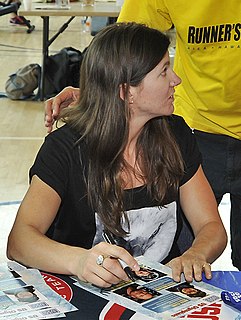A Quote by Frank Moore Cross
It fascinates me to analyze these things and, yes, to see layers in the texts and the building up of Biblical literature. I think this provides insights that one simply does not get by the direct approach.
Related Quotes
My claim is simply that the literary approach is one necessary way to read and interpret the Bible, an approach that has been unjustifiably neglected. Despite that neglect, the literary approach builds at every turn on what biblical scholars have done to recover the original, intended meaning of the biblical text.
Awarded the Nobel Peace Prize in 1986, Elie Wiesel is also the author of more than 40 books. As relevant as anything to today's discussion are the insights into the Biblical texts that are contained in his lectures and books. They include Messengers of God [1976], Five Biblical Portraits [1978] and his just-published Wise Men and Their Tales - Portraits of Biblical, Talmudic and Hasidic Masters.
Instead of thinking about building up my image or building up my brand or building up my career, I've turned it and taken the approach of focusing on what I can give instead of what I can get. It's been a very enjoyable process for me. That's more of a heart position that I've taken. It's been one of the greatest things I've ever done.
I think evangelicals would do better if they concentrated less on bolstering the formal authority of the Scripture - which I certainly would want to affirm - and more on displaying how biblical texts can shape lives in salutary ways, how they are fruitful texts, how they are texts one can live according to.
In fact I don't think of literature, or music, or any art form as having a nationality. Where you're born is simply an accident of fate. I don't see why I shouldn't be more interested in say, Dickens, than in an author from Barcelona simply because I wasn't born in the UK. I do not have an ethno-centric view of things, much less of literature. Books hold no passports. There's only one true literary tradition: the human.
Archaeology in general is the recovery and study of the material culture of past civilizations. Biblical archaeology is as an application of the science of archaeology to the field of biblical studies. Through the comparison and integration of Scripture with the evidence of history and culture derived from archaeology, new insights into the biblical context of people and events, and sometimes the interpretation of the text itself, are possible. In this way archaeology serves as a necessary tool for biblical exegesis and for apologetic concerns.
I can't think of a single one of my plays that does not represent a coincidence between an external and an internal event. Something outside of me, outside even my own life, something I read in a newspaper or witness on the street, something I see or hear, fascinates me. I see it for its dramatic potential.































